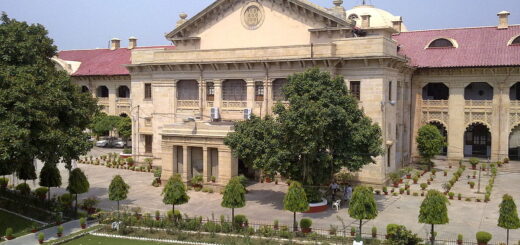Supreme Court Questions: Why Limit Testing to Prasad? Dismisses PIL for Testing Temple Offerings Nationwide.

The Supreme Court has rejected a Public Interest Litigation (PIL) that called for government action to ensure the quality of prasad at religious places nationwide. The Court noted that the requests made in the petition relate to state policy. The PIL aimed to compel the Union and state governments to test the prasad or bhog for quality before it is distributed, to ensure its purity. It also requested the Food Safety and Standards Authority of India (FSSAI) to create rules for random testing of the ingredients used in prasad.
During the hearing, the judges questioned why the focus was only on prasad, suggesting that similar concerns apply to food in hotels and grocery items, which could also be adulterated. Without a detailed hearing, Justices B.R. Gavai and K.V. Viswanathan dismissed the petition, stating that the issues raised fall under state policy. They advised the petitioner, Preeti Harihara Mahapatra, a self-identified social worker, to approach the relevant authority for consideration. The petition, prepared by Advocate Shantanu Kumar, argued that food adulteration at religious sites poses health risks and offends religious beliefs.
The discussion highlighted two key legal questions: first, whether food adulteration at religious sites violates rights under Articles 25 and 26, and second, whether it breaches the implied right to health under Article 21. The petition argues that offering food to deities, which is then deemed blessed and shared among devotees, is a vital aspect of Hindu practice. It mentions the FSSAI’s ‘BHOG’ initiative, aimed at enhancing hygiene and sanitation in places of worship, but points out that these guidelines are merely voluntary. Shantanu Kumar clarified that he was not blaming temples for the issue, as they often lack the means to ensure the quality of their supplies. He noted that while the FSSAI has authority, its guidelines are not enforceable.
The Supreme Court’s remarks in Swami Achyutanand Tirth v. Union of India (2016) were referenced, where the Court established guidelines to combat food adulteration, particularly in dairy products. The petition cites recent cases of adulteration, including the controversy over using animal fat in ladoos at the Tirumala Tirupati Devasthanam in Andhra Pradesh, which raised significant concerns about both faith and health. However, the Bench suggested that individuals with specific complaints about any temple could approach the relevant High Court.
Cause Title: Preeti Harihara Mahapatra v. Union of India [W.P.(C) 780/2024 PIL-W]









